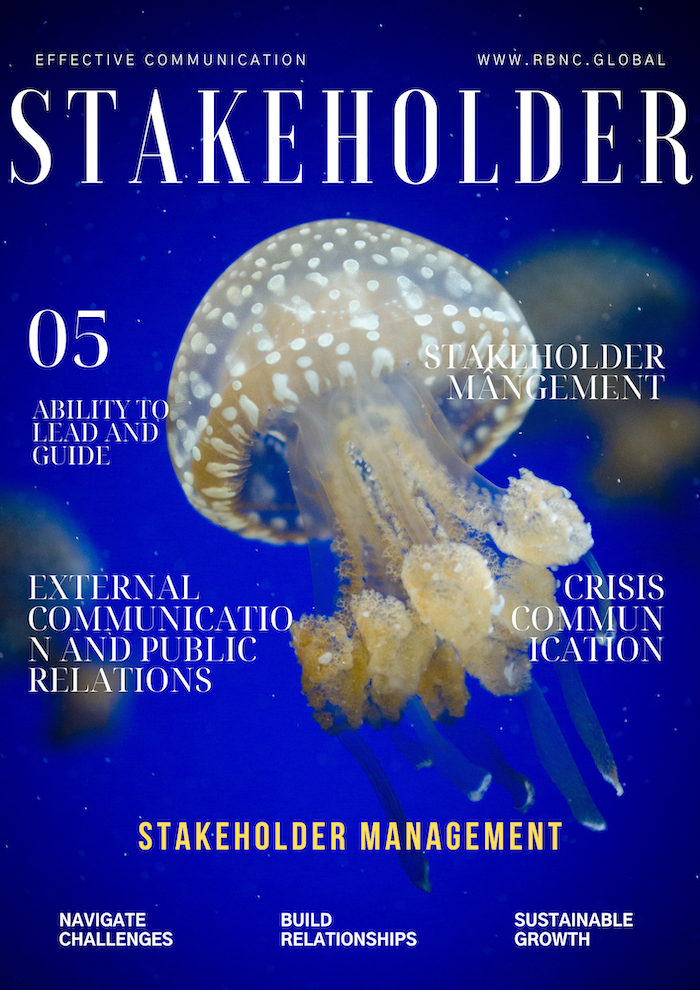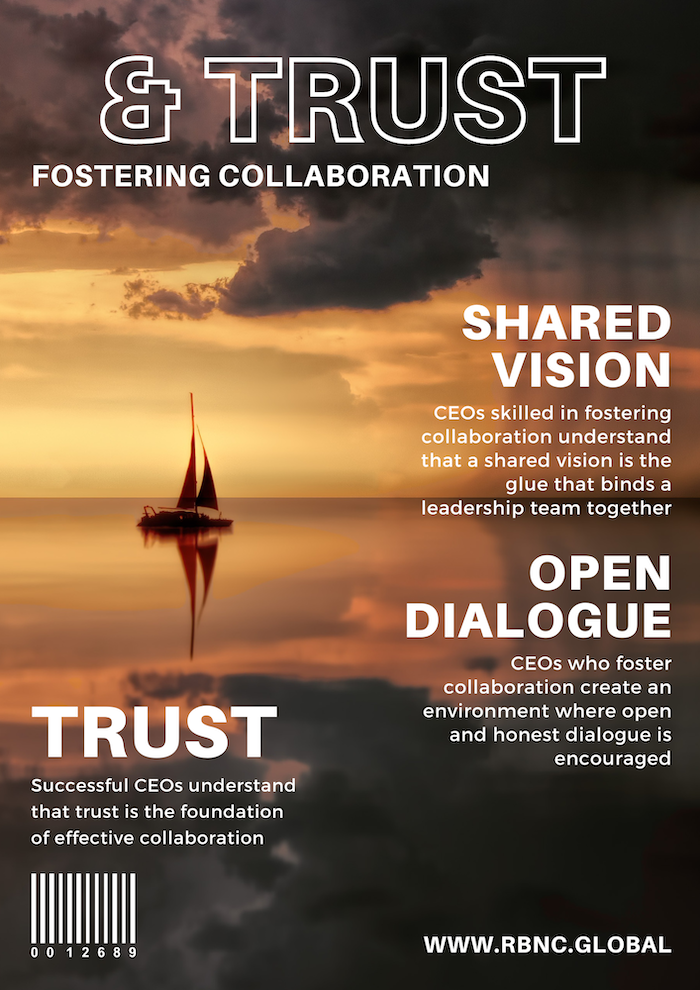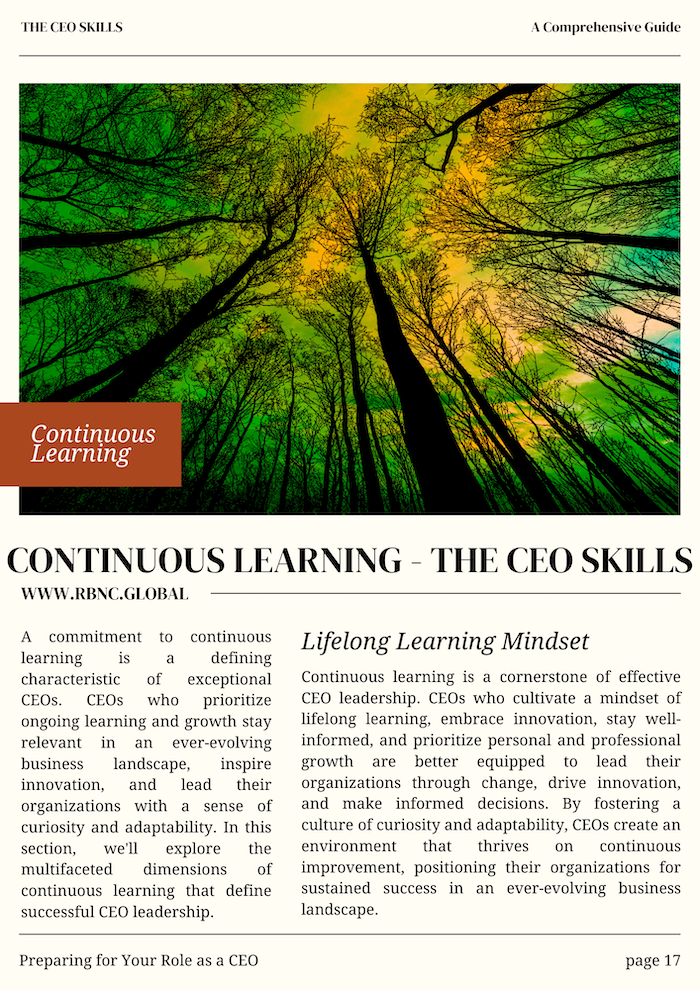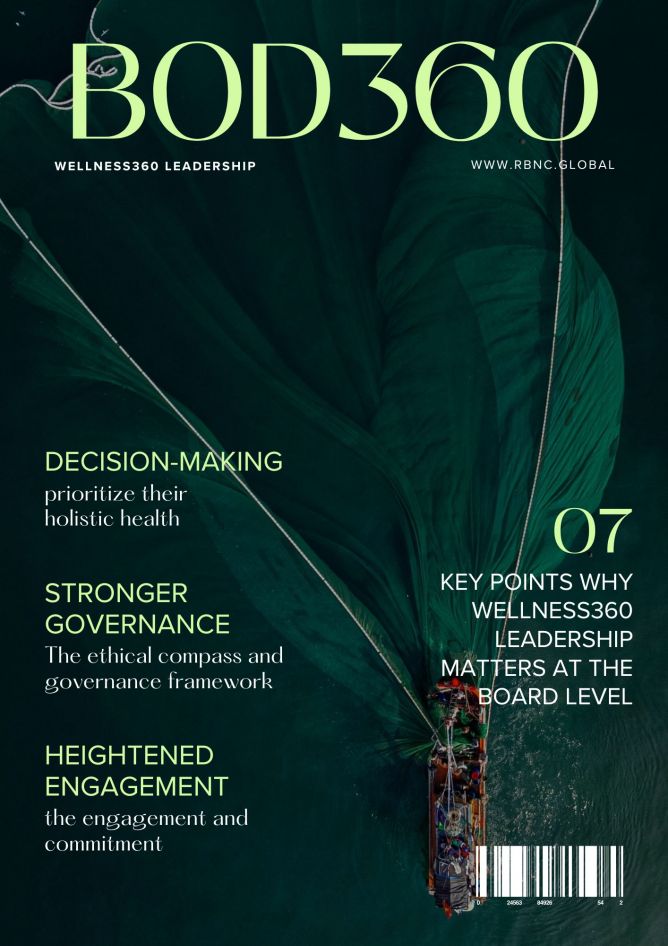Chapter 5: Effective Communication and Stakeholder Management
Effective communication and stakeholder management is paramount to a CEO's ability to lead and guide an organization successfully. CEOs who excel in these areas create a strong foundation for building trust, alignment, and positive relationships with internal and external stakeholders. In this chapter, we'll explore the intricate dimensions of effective communication and stakeholder management that define exceptional CEO leadership.
5.1 Clear and Transparent Communication
Exceptional CEOs prioritize clear and transparent communication to foster understanding, alignment, and cohesive organizational culture.
- Open Dialogue: CEOs promote a culture of open dialogue, encouraging team members to share their thoughts, concerns, and ideas freely.
- Transparency: These CEOs communicate openly about organizational performance, strategic decisions, and challenges to maintain trust and credibility.
- Consistent Messaging: CEOs ensure that messaging is consistent across all communication channels, minimizing confusion and reinforcing key organizational values.
- >>> More
5.2 Effective Internal Communication
CEOs skilled in effective internal communication ensure that information flows smoothly throughout the organization, keeping all team members informed and engaged.
- Timely Updates: Exceptional CEOs provide timely updates on organizational changes, initiatives, and milestones to keep the team informed and engaged.
- Engagement Strategies: These CEOs develop strategies to foster employee engagement, such as town hall meetings, newsletters, and regular team communication.
- Listening and Feedback: CEOs actively listen to employee feedback, address concerns, and create an environment where team members feel valued and heard.
- >>> More
5.3 Stakeholder Engagement and Alignment
CEOs who prioritize stakeholder engagement cultivate positive relationships with both internal and external stakeholders.
- Employee Engagement: Exceptional CEOs engage employees by involving them in decision-making, recognizing their contributions, and supporting their professional growth.
- Customer Engagement: These CEOs maintain a strong connection with customers by seeking feedback, addressing concerns, and continuously improving products and services.
- Investor Relations: CEOs communicate with investors regularly, sharing information about financial performance, strategic direction, and growth prospects.
- >>> More
5.4 Crisis Communication and Reputation Management
Effective CEOs are skilled in crisis communication and reputation management, ensuring that the organization navigates challenges with transparency and integrity.
- Transparent Updates: Exceptional CEOs provide honest and transparent updates during crises, reassuring stakeholders and demonstrating a commitment to resolution.
- Crisis Preparedness: These CEOs develop comprehensive crisis communication plans that outline roles, communication channels, and key messages in the event of a crisis.
- Reputation Protection: CEOs proactively manage the organization's reputation, addressing negative perceptions and preserving its brand identity.
- >>> More
5.5 External Communication and Public Relations
CEOs who excel in external communication and public relations effectively convey the organization's values and achievements to external stakeholders.
- Media Relations: Exceptional CEOs build relationships with the media, ensuring accurate representation of the organization and effectively managing public perception.
- Thought Leadership: These CEOs position themselves and the organization as thought leaders in their industry, contributing valuable insights to relevant discussions.
- Community Engagement: CEOs engage with the community, demonstrating the organization's commitment to social responsibility and building positive community relationships.
- >>> More
Conclusion:
Effective communication and stakeholder management are the cornerstones of exceptional CEO leadership. CEOs who prioritize clear communication, foster stakeholder engagement, navigate crises with transparency and project a positive external image build a strong foundation for organizational success. By creating a culture of trust, collaboration, and open dialogue, CEOs ensure that their organizations are well-equipped to navigate challenges, build meaningful relationships, and achieve sustainable growth in a dynamic business landscape.
Back to: Preparing for Your Role as a CEO: A Comprehensive Guide









